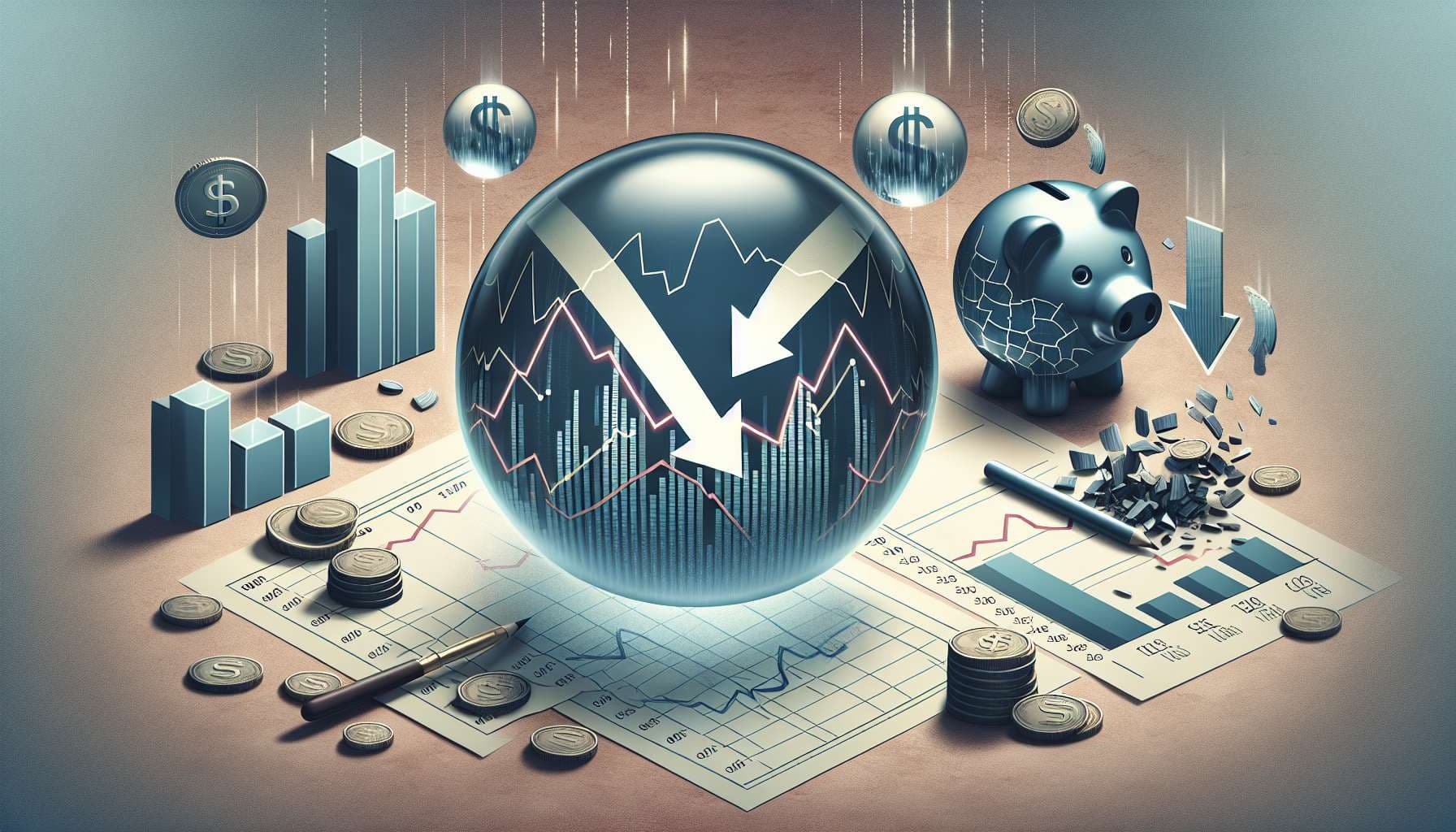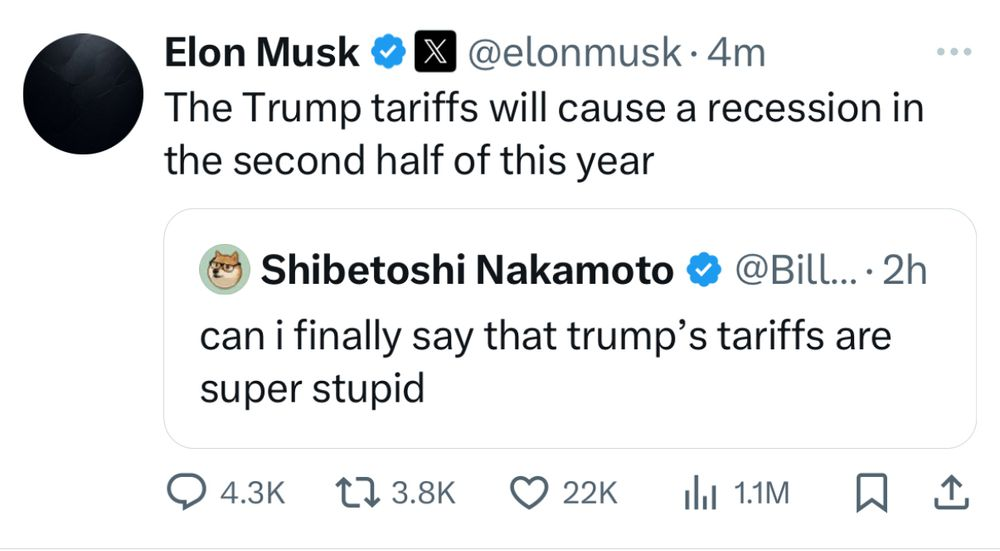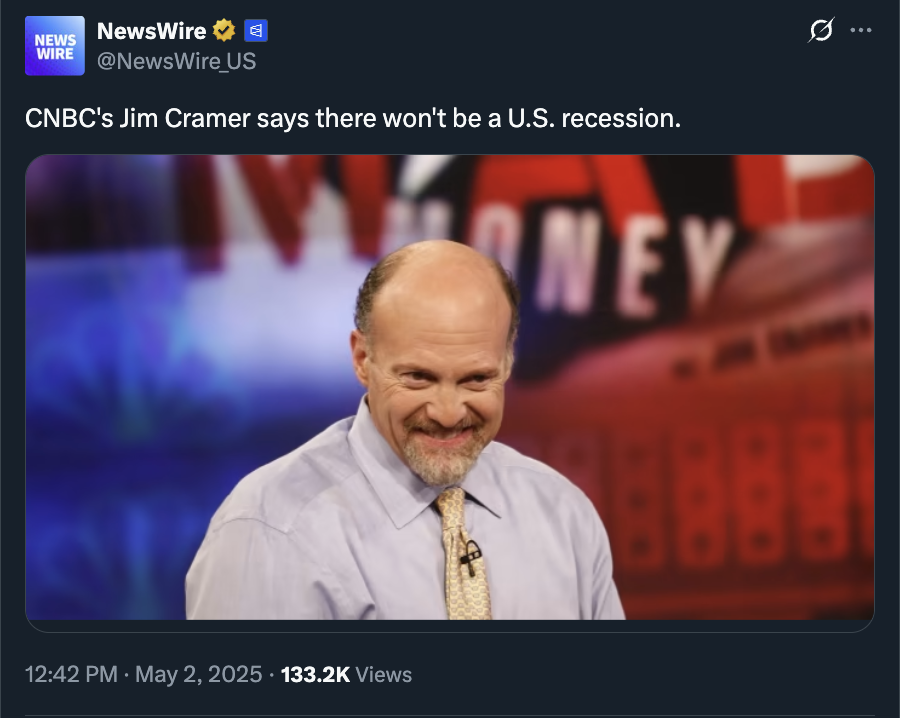
A recession is defined as 2 consecutive quarters where the GDP is negative. We will use the initial estimate provided, not any revised estimates.
Both quarters must occur in 2025, ie Q3 and Q4 having negative GDP will resolve this market to YES. However, 2025 Q4 and 2026 Q1 would resolve this market to NO.
🏅 Top traders
| # | Trader | Total profit |
|---|---|---|
| 1 | Ṁ229,746 | |
| 2 | Ṁ31,687 | |
| 3 | Ṁ14,583 | |
| 4 | Ṁ14,206 | |
| 5 | Ṁ11,760 |
People are also trading
@mods inactive creator. According to the market description, initial estimates are all that’s taken into account, and with Q3 initial estimates showing positive growth, this market should resolve NO. It’s not possible to have two consecutive negative quarters anymore. https://www.bea.gov/news/2025/gross-domestic-product-3rd-quarter-2025-initial-estimate-and-corporate-profits
@turtlepurple can this resolve now that Q3 is out and well above zero? https://www.bea.gov/news/2025/gross-domestic-product-3rd-quarter-2025-initial-estimate-and-corporate-profits
“The yield curve predicted the last eight recessions,” Harvey said. “At some point it’s going to deliver a false signal. But eight out of nine is pretty good.”
@turtlepurple will this market resolve when Q3 advance estimate comes out, given growth is positive?
@DanW this market narrowly defines recession based on GDP growth though. If Q3 is positive, it resolves no.
Kalshi currently has a 94% chance of Q3 GDP growth coming in above 0.0%
If Q3 GDP is positive, this market will resolve no.
Q3 ends 9/30/25
Kalshi currently predicts growth of 1.8%
And predicts a 6% chance q3 growth is <=0% as of today
@NGK jobs are somewhat concerning, but Q2 GDP looked great!
The disconnect between jobs and GDP is confusing, but it sounds like markets are pricing a cut at the Fed's next meeting, so sounds like jobs win for now.
Remember that the economy doesn't just run hot or cold of its own accord - a prediction about recession is in large part a prediction about whether the Fed will underreact or overreact, not about what would happen if they did nothing.
So jobs data looks bad, and retroactively so because of the revisions - this puts the Fed on the back foot since they're now responding with a larger delay than usual. That's an argument for a risk of underreaction - though they could always hold an emergency meeting if waiting til September is too long. I suspect it's not, especially since futures aren't even fully pricing in a 25bps cut, let alone anything larger. So seems like the jobs data isn't being treated as anything super bad yet.
Despite jobs growth being poor, that actual unemployment rate doesn't look so bad. 4.2% is the equal highest rate over the past year, actually the majority of monthly unemployment figures in the past year have been 4.2%. Not sure how to reconcile that, presumably changes in participation rate, but I'm under the impression the raw unemployment rate is a better recession indicator than the participation rate.
Anyway current forecasts/nowcasts for Q3 GDP are looking fine, so even if unemployment gets bad enough for NBER to declare that a recession started this year, all we need is the Q3 growth number to be positive for this to resolve NO.
@chrisjbillington This is the fake news brother! Please do not fall for the misinformation campaigning, it is making the brain mushy.
https://edition.cnn.com/2025/07/27/economy/us-pet-surrenders-shelters-economy
More people give up on their pets.
A recession is defined as 2 consecutive quarters where the GDP is negative.
@creator Did you mean to say "GDP growth is negative"? Or is this going to be a big gotcha for traders who didn't read closely? 🙃



